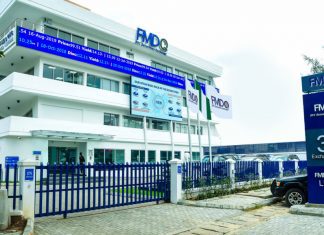Because of their porous nature, experts and analysts in the maritime and security sectors have examined trading activities in Nigeria’s border stations and concluded that, absent significant action, criminals and economic saboteurs will continue to exploit the porosity and other unapproved routes to wreak havoc on Nigerians and the country’s economy.
In fact, in their efforts to smuggle in and out illegal items, criminals attempt to damage the country’s economy. Others attempt to defraud the government by avoiding paying taxes and paying too little for commodities that are subject to duties.
Along the country’s open borders, evidence of people trafficking is not implausible, even in the face of criminal tendencies.
According to some observers, the country can’t do much about the porous borders and criminal activity occurring there right now, except from implementing contemporary technologies to secure the environment and borders.
According to experts, it is important to recognize that Nigeria shares borders with Cameroon and the Benin Republic. These are all nations that speak French. For example, Niger in the North.
It is noteworthy that the majority of these nations’ trade with Nigeria is not as seamless as it should be.
The reason for this is because smugglers leverage the fact that some products that are forbidden from entering Nigeria and its ports are permitted there to enter Nigeria.
Rice, for example, is prohibited from entering Nigeria through the country’s land boundaries.
But the Republic of Benin permits that. As a result of their close closeness, Benin receives rice, which they attempt to smuggle into Nigeria over the land boundaries.
Moreover, there are numerous border voids while examining the layout of Nigeria’s borders. This shows “that even when all the security agencies are placed along the border, to man the lands, and across a single line, they won’t be able to monitor all the border spaces at a go,” analysts added.
All these difficulties must have been on Comptroller Ben Oramalugo’s (Ph.D.) mind when he assumed the position of Customs Area Controller (CAC) at the Customs Service’s (NCS) Seme Border Command.
Oramalugo’s many successes in trade facilitation and anti-smuggling have sent a warning to economic saboteurs who continue to engage in illegal trade along the corridor using unapproved routes: either stop or face consequences because his agents are not giving up on catching the criminals and economic saboteurs.
Along with arresting them, the Customs head threatened to seize their illicit items and said they would continue to count their losses while also meeting with the appropriate courts.
According to the NCS, Seme border area command, the fight against economic saboteurs who try to smuggle illegal goods that aren’t allowed to enter the country through the land borders has actually been stepped up.
Read Also: David Mark to Coalition Members: “You’re In or Out, No Middle Ground”
The Command revealed that it had caught and confiscated 898 packages of Cannabis Sativa, commonly referred to as Indian hemp, from hard drug traffickers after this assault.
Between July 1 and July 19, 2025, the Command also said that it intercepted and sized five trucks that were transporting 2,800 bags of 50 kg foreign rice, totaling N919.5 million in duty-paid value.
Speaking at a press briefing in Lagos, Customs Area Controller (CAC) Oramalugo PhD said that the command also seized 1,319 more bags of rice, increasing the total seizures to 4,119 bags during the reviewed period.
The National Drug Law Enforcement Agency (NDLEA), Seme Area Command, received the confiscated Cannabis Sativa from Idris Ibrahim Mohamed, the NDLEA Commandant in-charge of the Agency’s Seme Border Command.
Dr. Oramalugo said the seizures were the result of reliable intelligence collected by his command’s agents along the Lagos-Abidjan route.
He said that 250 bales of used clothing and 2,800 sacks of rice were found inside the five vehicles that were stopped.
He added that 50 cartons of tomato ketchup, 40 bags of sugar, and 64 bags of flour were among the additional seizures conducted by the command between June 14 and June 30, 2025.
Additionally, one engine-powered watercraft, twenty bales of used clothing, and four bales of used shoes were intercepted and confiscated by the Command’s agents.
The Customs head stated that the total Duty Paid Value (DPV) for all seizures was N1,268,794,474.
The results were attributed by the CAC to the diligence and dedication of the Seme Command’s officers and soldiers, with assistance from the Nigerian military and other organizations.
He restated the Federal Government’s ban on rice imports across land borders, which is intended to help local producers and lessen Nigerians’ reliance on importing and consuming foreign rice.
“Nigeria is Africa’s largest producer of rice, surpassing Egypt and Tanzania with an annual output of over 8 million metric tonnes,” he stated.
“But the lack of patronage continues to be a problem for our rice mills, which prevents them from operating at their maximum capacity,” he stated.
According to the CAC, the command expedited trade and the transportation of 1,837 trucks, which accounted for more than 116,723.26MT of items manufactured in Nigeria during that time.
Only N22,368,388,976.10k was the Free On Board (FOB) value of these exports. The National Export Supervision Scheme (NESS) fees, however, were just N111,841,944.87K.
He revealed that the Command brought in a total of N1,593,676,123.26 between May and July 2025.
He bemoaned the fact that certain people were still smuggling, which was preventing Nigeria from making economic development.
He issued a warning: Seme Command will not allow any kind of illegal trading or smuggling within its borders.
The CAC responded to inquiries from reporters by saying: “I’m telling Nigerians that we are on top of our work.” We are informing Nigerians that their needs will be met and that the country’s rice mills will continue to expand. We wish to support Nigeria’s rice production and Nigerians’ use of it. We also want to let them know that smugglers and smuggling do not reside in Seme.
“We are ensuring that the Federal Government receives revenue through this channel and that Nigeria does not receive uncustomed goods.” At one point, they even said that rice was entering from the Seme border and that people were dying from it. It isn’t accurate. The purpose of this is to damage our reputation. They are jealous and saying those things. Here, we are carrying out our duties, and the CGC and his management team are supporting us in doing so. Because he is behind me, the CG told me to execute my duty without fear or favor.
In response to a question about whether the drivers of the trucks that were confiscated carrying illegally obtained rice were taken into custody, the CAC stated that they ran into the woods as the operatives surrounded them and that the trucks and their contents had been seized legally.
The CAC bemoaned the smugglers’ continued encroachment due to greed.
Nigeria is superior to other African nations, he said, adding that the nation has a landmass of roughly 955,000 square kilometers, which they should make the most of instead of using it for criminal purposes.
Are you aware that we import almost 3 billion tons of palm oil annually? Yes. In terms of global palm oil production, we rank fifth. We are prepared to pose a serious threat to the traffickers. That is what I have been doing. If you’re willing to take that chance, the rest should quit smuggling. They will tell you that here is where they were born and that their great-great fathers lived and worked. However, I can assure you that there are plenty other respectable business ventures they can pursue.
With 50 million metric tons of palm oil produced annually, Indonesia is the world’s largest producer. Malaysia came in second with 19 million metric tons. Nigeria comes in fifth. Those nations came here to pick up our palm seedlings in the 1960s. They’re exporting this to us right now. The average demand is roughly 3 million metric tons in Nigeria.
Our production does not reach 1.5 million metric tons. Thus, a gap still exists. Nigerians here can increase our output and export if they put in a lot of effort. Furthermore, palm oil is more expensive on the market than crude oil.
Crude oil currently costs roughly $67 per barrel. But a barrel of palm oil costs between $80 to $90.
That’s 2,800. Then, the 1,319 seizures that you are witnessing are occurring on this field. Therefore, the five trucks that we received during the activities totaled 2,800 rice. Kindly remember that.
Join Television Nigerian Whatsapp Now
Join Television Nigerian Facebook Now
Join Television Nigerian Twitter Now
Join Television Nigerian YouTUbe Now





